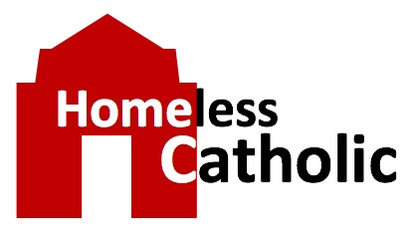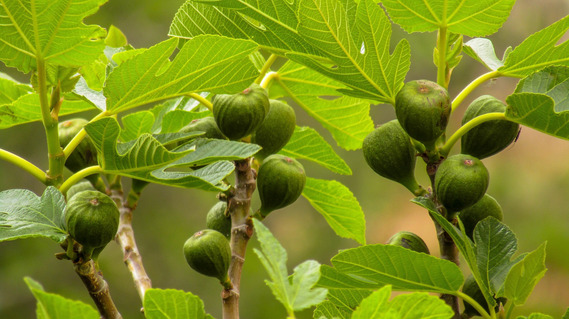Intervention for the poor fig tree
Even the fig tree that shows up in the gospel had an inheritance, though one might surmise that it was a poor one. Depleted soil. Weak genetics. Persistently bad weather. Invasive. The gardener requests that he be allowed to try for a time to try to compensate for the fig tree’s poor inheritance.
After all, one cannot expect the uneducated child to grow up to write Shakespearean plays unless there is some degree of intervention.
Image by Vane Monte
Reflection - Inheritance
By Steve Hall
https://bible.usccb.org/bible/readings/102321.cfm
Romans 8:1-11
Luke 13:1-9
When someone mentions the word ‘inheritance’ our thoughts most likely turn to goods or monies that people have been able to pass along to others after their death. The circumstances of ordinary life are seldom viewed from a similar perspective; though, if we stop and think about it, everything present in life at the time we were born is part of our inheritance. Some of those things will prove important; others will fade in the passage of time. Politicians sometimes allude to the inheritance being created for future generations when talking about increasing the national debt or proposed new federal spending. The principle applies across the board: whatever is in the world at the time of our birth is part of our inheritance.
After the First World War, the victorious powers in Europe designed a political environment of retribution which directly led to the ascendancy of Hitler. But it was their children, not the designers, who were the beneficiaries of the consequences. That environment of retribution was part of the inheritance passed down to post WWI generations. Today, I, like others my age, sometimes turn to those in the younger generations to provide guidance through the intricacies of technology and the internet. Neither were part of my inheritance, but those born in the 1970’s or later found that both were part of the cultural scene. My children inherited a culture where both were ordinary aspects of life and consequently they deal with these innovations as normal.
Even the fig tree that shows up in the gospel had an inheritance, though one might surmise that it was a poor one. Depleted soil. Weak genetics. Persistently bad weather. Invasive insects. The gardener requests that he be allowed to try for a time to try to compensate for the fig tree’s poor inheritance. After all, one cannot expect the uneducated child to grow up to write Shakespearean plays unless there is some degree of intervention.
When Paul told the Romans: “Now there is no condemnation for those who are in Christ Jesus. For the law of the spirit of life in Christ Jesus has freed you from the law of sin and death.” it must have come as quite a shock. They had inherited a world in which condemnation was possible, even expected, because of the law of sin and death. Come to think of it, Paul’s words still come as a shock because we still live in an environment where the law reigns supreme.
The variables of inheritance are incalculable. What we inherit may be a bag of lemons or a seemingly bottomless cornucopia. Some with lemons make lemonade; some just become sour. Some with a cornucopia are generous with the ‘fig trees’ among us; others wallow in decadence. The story of the prodigal son reminds us of that possibility.
In the journey of life we necessarily review our inheritance though we may not think of it in those terms. Possibilities, Choices, Opportunities are probably the more common terms we would use to review our alternatives. Recent circumstances required that I review the life of someone for whom I had a grudging tolerance. I never knew him well nor would I claim to know him even after that life review. But, in the end I had to admit that maybe he had quite possibly made the best of both the lemons and the cornucopias in his life.
While certain portions of our inheritance, such as our genetics, are firmly established, not everything we inherit is beyond our choice. Neither are all parts of our heritage immediately evident. In fact, a good bit of our inheritance enters our awareness only as we advance in years and understanding. It takes time, for example, for family bonds to become evident, for animosity to be expressed, for admiration to be demonstrated. Yet these attitudes of both family and society are also part of our inheritance. Eventually we will choose to either embrace or reject one aspect or another from the vast collection which has come our way. The choices we make will be crucial.
In writing to the Corinthians Paul is not wishy-washy about what he has been given or what he preaches. “For I delivered to you as of first importance what I also received, that Christ died for our sins in accordance with the Scriptures that he was buried, that he was raised on the third day in accordance with the Scriptures.” (I Corinthians 15:3-4) He will continue in this passage to describe fundamentals from Jesus’ life; and he is adamant. I delivered what I received. I passed along what I had been given. I shared my inheritance. He did not adapt it, reconfigure it, rework it, modify it to fit his own desires or perspective.
Paul takes the same position when talking about elements of faith. “For I received from the Lord what I also delivered to you, that the Lord Jesus on the night when he was betrayed took bread, and when he had given thanks, he broke it, and said, ‘This is my body which is foryou. Do this in remembrance of me.’" (I Corinthians 11:23-24) Eating the flesh of the Son of Man and drinking his blood was a hard teaching even before the crucifixion and resurrection; it was no less so after these events. Yet, Paul saw no need to soft-peddle the truth. What he received from the Lord was what was given to others.
At the very beginning of the Church we find both respect and reverence for the inheritance received. Today it is our inheritance; and, while we may seek to more deeply understand, we betray what we have been given if we pick and choose and modify that heritage to fit our preferences and passions.
“Now there is no condemnation for those who are in Christ Jesus. For the law of the spirit of life in Christ Jesus has freed you from the law of sin and death.” This is our own, our personal, our eternal inheritance.

